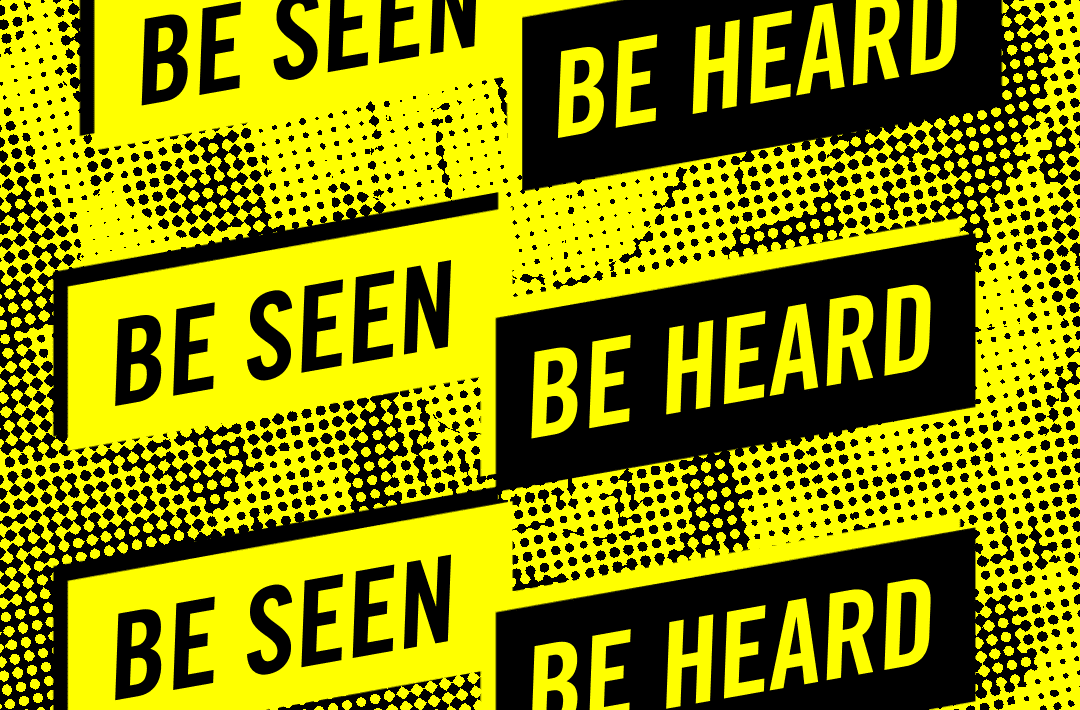Dujuan Hoosan, 14, Australia

Dujuan is an Arrernte and Garrwa boy from Australia. He has a strong connection to his culture, speaks three languages and is recognised as a healer, an important position in his community. But the skills and intelligence he has inherited from his people are not valued or included in the Australian schooling system and he has experienced discrimination, such as being excluded from school and threatened with prison. In the Northern Territory, where he lives, 100% of children in prison in 2020 were Indigenous.
Dujuan’s life experiences were shown in a documentary film called In My Blood It Runs. In 2019, when he was twelve, Dujuan travelled to Geneva and became the youngest person ever to address the UN Human Rights Council and the UN Committee on the Rights of the Child. He called for Australia to raise the age of criminal responsibility from ten to 14, and spoke about his own experiences of nearly entering Australia’s youth justice system. He also spoke about the need to rebuild education systems led by Aboriginal people. He’s helped Australia refocus on Indigenous children and communities and to better understand that children have the right to participate in decisions that affect them.
“Adults never listen to kids – especially kids like me. But we have important things to say.”
Aisha Saleh, 16, Nigeria
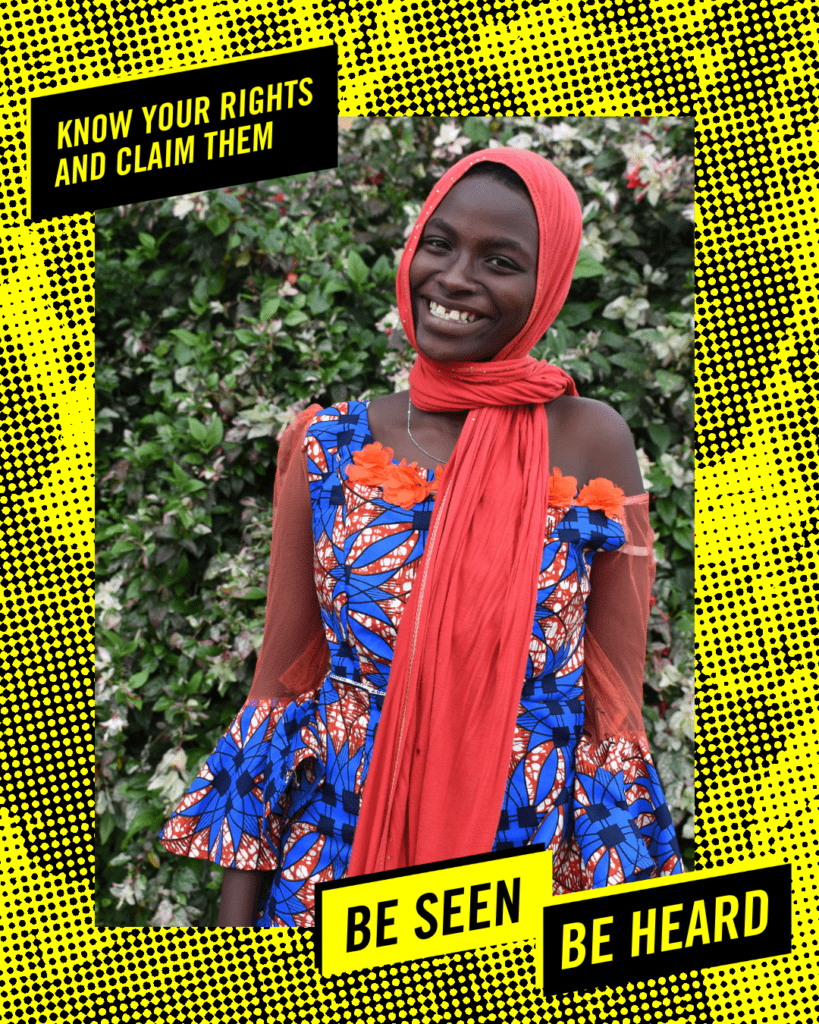
Aisha lives with her brother and grandmother in a low-income area of Lagos, the biggest city in Nigeria. She has been an activist since she was eleven, fighting for the right to education and against child marriage. In 2019 she won a place to represent Nigeria at the United Nations International Children’s Conference in Geneva, Switzerland, but the Nigerian passport office blocked her, refusing to believe her travel plans because she was poor. A year later, when she was fifteen, Aisha began a campaign on period poverty and tackled the cultural taboo on talking about menstruation. She urged the Nigerian government to provide free menstrual products to girls like her, who cannot afford sanitary products so miss school when they are menstruating. Many people donated money and pads for distribution to girls across Nigeria, including in camps for displaced people.
“If you are ignorant of your rights, you can easily be taken advantage of …. If you know your rights, you will not be cheated easily.”
Moses Akatugba, 32, Nigeria
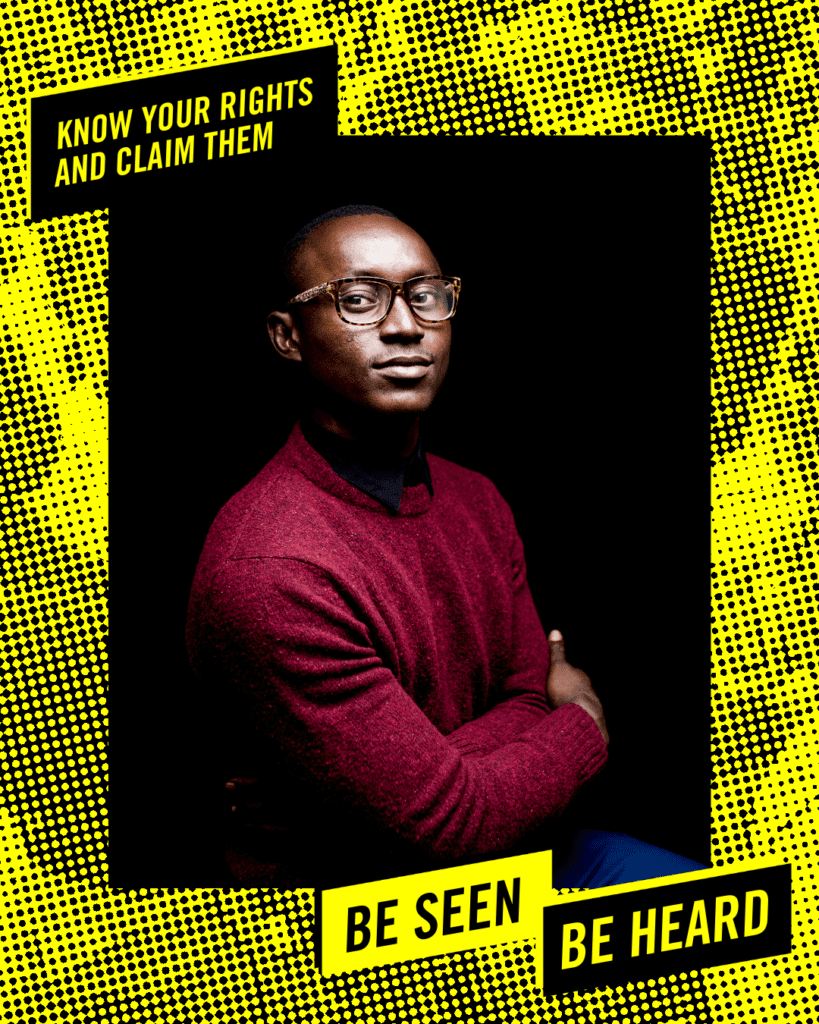
In 2005, 16-year-old Moses was waiting for the results of his secondary school exams when he was arrested by the Nigerian army, shot in the hand and beaten. They suspected him of stealing three mobile phones in an armed robbery nearby, a charge that he denied. He was tortured and forced to sign an untrue confession. After eight years in prison, he was sentenced to death by hanging. This was unlawful, both because he was a child at the time of the alleged offence and because ‘confessions’ extracted under torture should not be allowed as evidence in court.
During his time behind bars Moses coached the prison football team to try and keep everyone’s hope alive. Activists around the world including many young people demonstrated outside their country’s Nigerian embassies on his behalf. They also called on the Nigerian government to commute the death sentence and hold a public inquiry into the torture. The pressure worked. Moses was freed in 2015.
“I am overwhelmed. I thank Amnesty International and their activists for the great support that made me a conqueror in this situation. They are my heroes. I want to assure them that this great effort they have shown to me will not be in vain. I promise to be a human rights activist – to fight for others.”
Janna Jihad, 15, Palestine
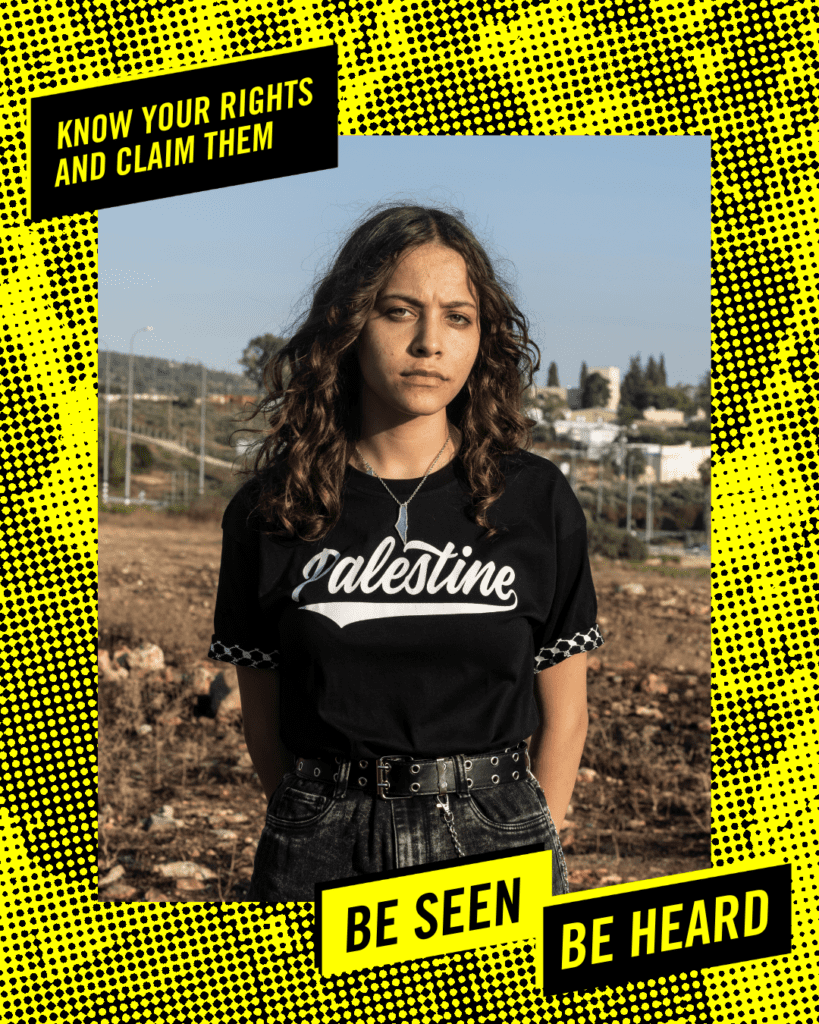
Janna grew up in the small Palestinian village of Nabi Saleh. In 2009, when Janna was three, her community used their right to peaceful protest and began weekly demonstrations. They were met with violence. When she was five, Janna’s uncle and her friend were killed by the Israeli military. Age seven, she decided to take action. She used her mother’s phone to record the struggles she was facing on a daily basis and became a human rights reporter. By the time she was a teenager, her live videos were watched by hundreds of thousands of people. In 2018, she became the youngest Palestinian press card-carrying journalist in the world, at the age of 12.
“I started journalism at the age of seven because I wanted the whole world to know what is happening here and how we live in fear and uncertainty. I faced a lot of situations, like seeing my relatives killed in front of me, my mother being injured, my friends getting arrested. I want a normal life, a normal childhood.”
Zulaikha Patel, 19, South Africa
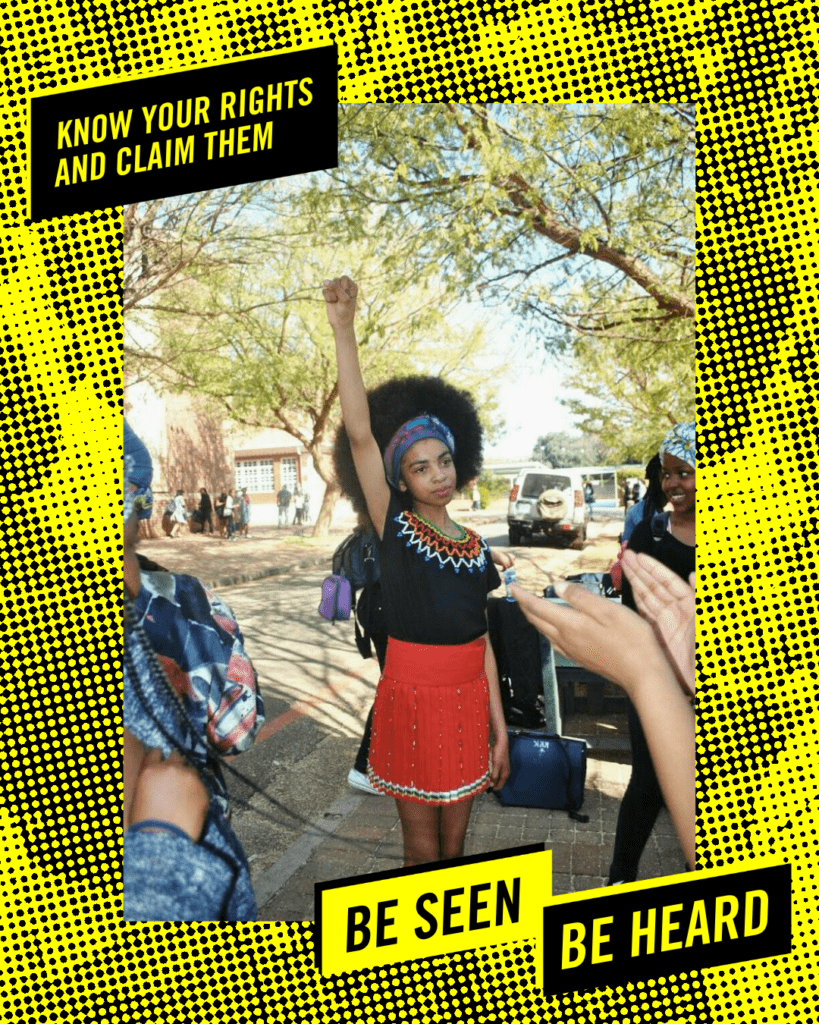
In 2016, when she was 13, Zulaikha and other black school students marched against Pretoria High School for its racist and sexist hair policy. The school had instructed students to ‘fix’ or chemically straighten their hair and had enforced its rules using racially derogatory language. The girls used social media to communicate their cause. The hashtag #StopRacismAtPretoriaGirlsHigh was used over 150,000 times and brought together Black students in a collective sharing of grievances about former white institutions. Pretoria Girls’ High, which was founded in 1902, was all white during apartheid, but since 1990, it has been integrated to all races. The protest inspired similar actions at other schools. It worked, as the regional department of education suspended the hair policy. She is now a best-selling author of the book titled, My Coily Crowny Hair.
“Asking me to change my hair is like asking me to change my blackness”
Muhammad Najem, 19, Syria
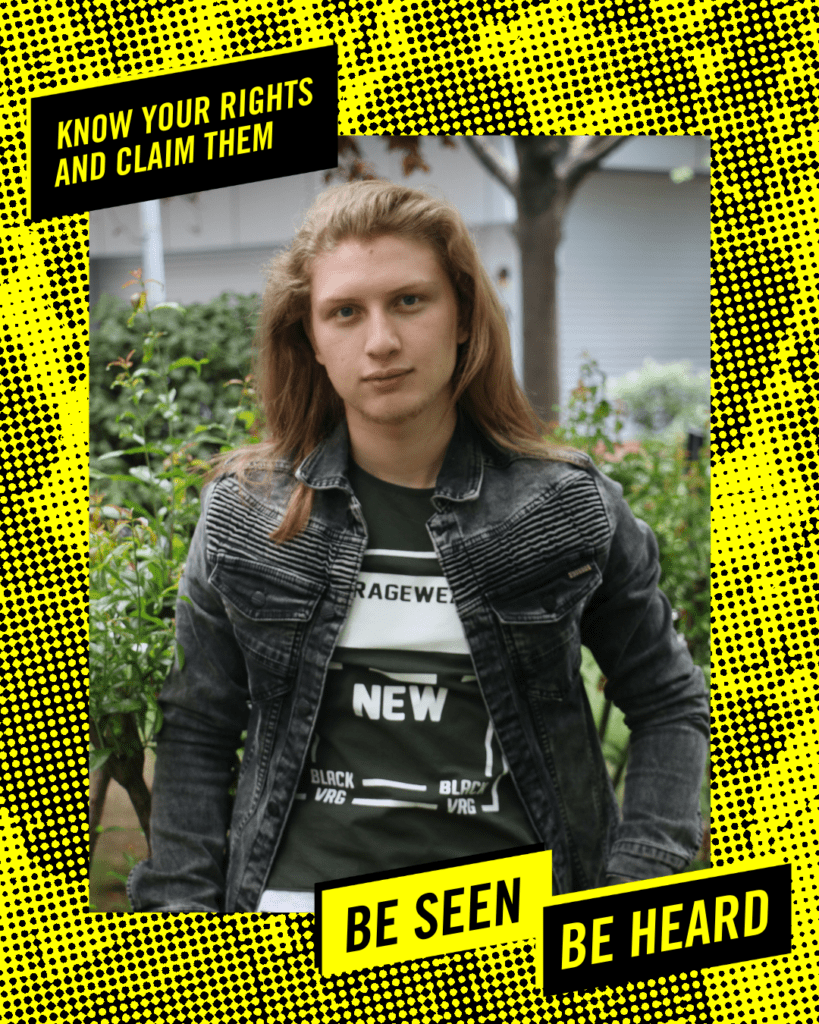
Muhammad was 15 years old in 2017 when he began to document the armed conflict in Syria. His father had been killed in an air strike on the mosque where he was praying. Muhammad witnessed extreme violence and suffering during the Syrian regime’s siege of his village in Eastern Ghouta. He became determined to tell the world what was happening. Speaking in English to a Western audience, he used social media to conduct interviews and document the day-to-day reality of life and death in a war zone. Whenever the bombing stopped, he and his older brother hurried to the rooftop and used a ten metre wi-fi pole with a USB stick to upload the footage. Soon Muhammad and his family were forced to flee. Eventually they were given asylum in Turkey, where he continues to report on ongoing war crimes and human rights abuses in his home country through contacts still in Syria.
“Young people can join peaceful protests, either in person or online. We can support other activists by sharing their posts on social media, and we can appeal to government leaders to listen to our voices. Even young children can make a video or take pictures, so they can share their situation with the world.”
Khairiyah Rahmanyah, 19, Thailand
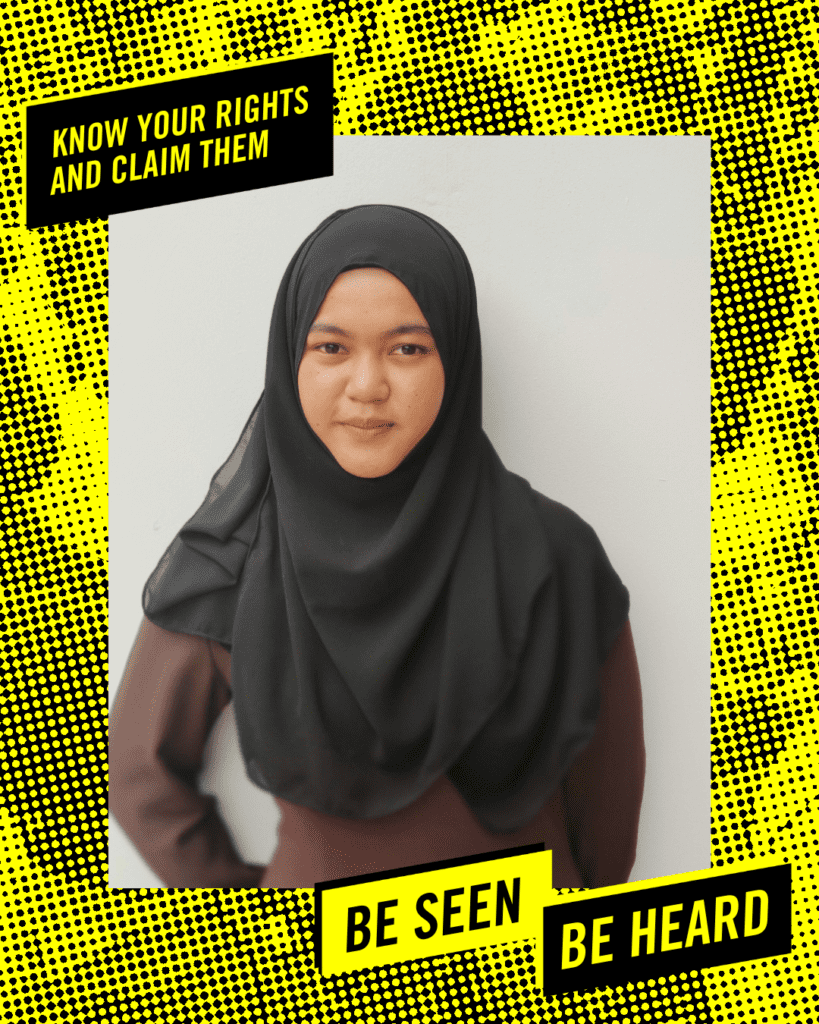
Also known as ‘Daughter of the Sea’, Khairiyah was born to a fishing family who live in a coastal village called Chana in southern Thailand. The sea around her village is a rich source of seafood and a home to endangered marine species, such as sea turtles and rare pink dolphins. In 2020, when she was seventeen, she launched a campaign against the Thai government’s plan to develop Chana into an industrial estate. She spent many hours picketing, and also travelled 1,000 kilometres to Government House in Bangkok to deliver a letter to the prime minister, begging him to stop the development. As a result, they decided to postpone the development and launch a new consultation involving local people.
“I live with the sea, eat from the sea and grew up with the sea. There is a tie between us – a strong one. I want to grow into adulthood in a place filled with environmental wealth just like we have now. I want the next generations to have the right to grow up in the same nature I grew up in.”
Emily Waldron, 13, UK
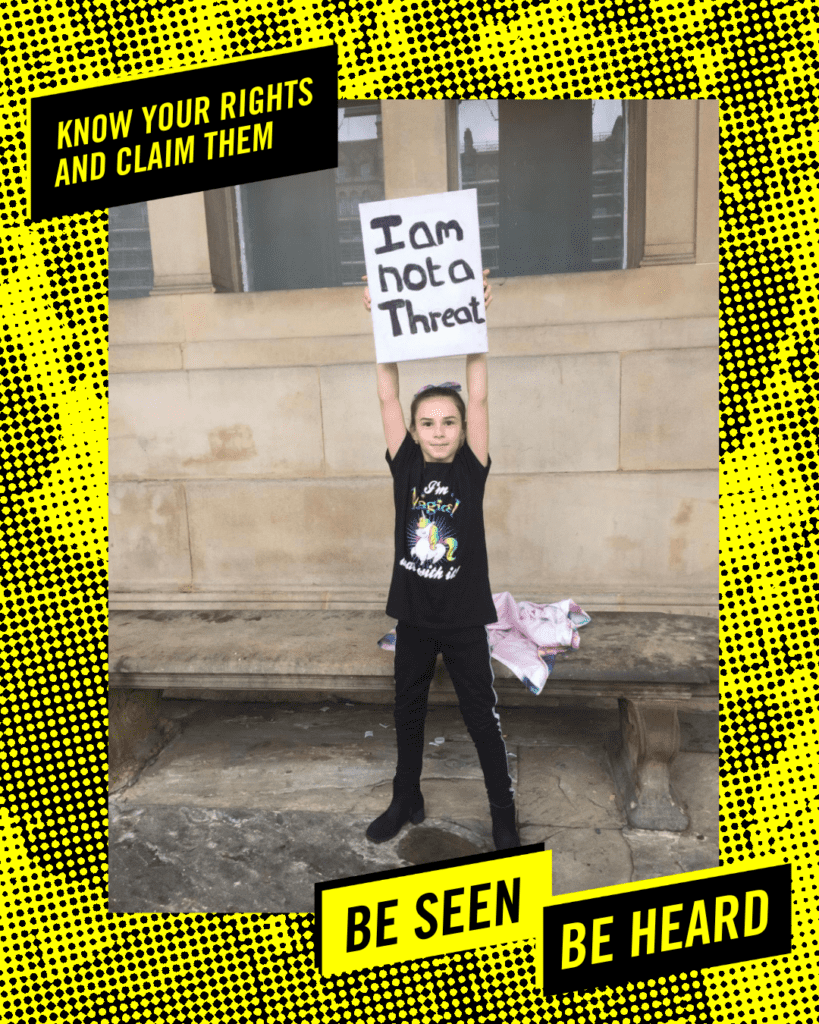
Emily is a 13-year-old British transgender girl. She had always thought she was the only person like her until she went to a meeting run by a charity called Mermaids, which supports young transgender people and their families. After this she decided to do what she could to make sure no one else in her position ever felt isolated. She attended a meeting at Amnesty International, where she talked to civil servants from the British government’s equalities office about the Gender Recognition Act, which allows some trans people to change their legal gender on birth certificates. It made her realise there are many ways to campaign for rights and equality. Since then, she has taken part in various campaigns.
“Campaigning makes me feel powerful and in control of my destiny. When I started secondary school, I started an LGBT and allies club. I gave speeches at each year group assembly to inform my peers and they were really popular. I want all pupils to feel safe and part of the school community. I will keep campaigning until I get the love, equality and respect that my community and I deserve, because we are all human and we should all be one big community and support each other.”
Tokata Iron Eyes, USA
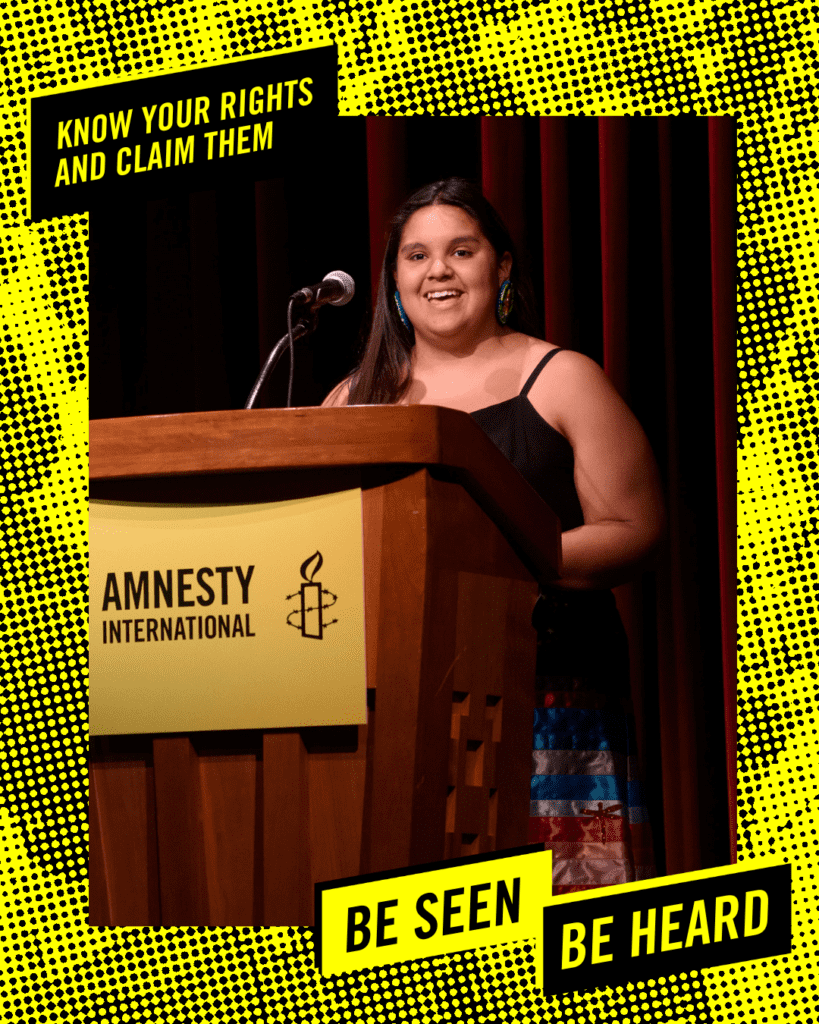
Tokata (Future) Iron Eyes is a member of the Standing Rock Sioux tribe in the United States. When she was nine, she testified against the building of a uranium mine in the sacred Black Hills. When she was twelve, she spoke in a video appealing for public support for her people’s battle against the proposed route of the Dakota Access oil pipeline. The campaign helped draw thousands of national and international visitors to Standing Rock to fight the pipeline in a protest that lasted nearly a year. In 2020, aged sixteen, Tokata Iron Eyes joined the board of a new sustainable energy group called Indigenised Energy. She continues to advocate for the planet and Indigenous rights.
“By living your truth and recognising the world’s suffering, you are already a part of the change. Trust yourself – and be loud about it.”
Brave Youth Leaders, USA
Brave Youth Leaders is a violence prevention youth council that trains young people to be peacemakers and combat the realities of everyday gun violence and social injustices, through an after-school programme.
Brave Youth Leader, Gabriel Kizer, aged 16, said:
“Gun violence is like a part of our lives now. It’s the new norm. BRAVE helps me voice my opinion more on this and other issues that no one seems to touch – like sex trafficking, single parent homes, abusive homes, depression and so on. It allows me to speak freely about how I feel – there are no wrong answers and it is a safe place to address any issues you may have. BRAVE gives you that solid foundation that you can depend on to back you up or have your back.”


